The Patton - Wilson ’79 Succession
Behind Wilson’s sudden elevation lay months of behind-the-scenes maneuvering
Howard Segal *75 is assistant professor of humanities and history at the University of Michigan, Ann Arbor. He was assisted in the preparation of this article by David Hirst, associate editor of The Papers of Woodrow Wilson. This is the second in PAW’s series marking the centennial of Wilson’s graduation from Princeton.
On April 24, 1902, Professor Woodrow Wilson 1879 spoke before the Princeton Club of Chicago. In his audience were two university trustees who for some time had felt dissatisfied with the conduct of campus affairs – David Benton Jones 1879, who had arranged for Wilson to make this address, and Cyrus H. McCormick 1879, a classmate of Wilson’s. Knowing full well of these trustees’ disquiet, Wilson spoke wittily and winningly about the importance of high academic standards. According to the Chicago Daily Tribune, “He also reminded his hearers that it rested with the alumni whether Princeton kept its place in the ranks of colleges.”
Behind Jones’s invitation and Wilson’s speech lay a complex and at times opaque series of events which culminated that same spring in the resignation of the Rev. Francis Landey Patton as Princeton’s 12th president and the immediate election of Wilson as his successor. The abrupt change of administration surprised most people outside the university. And the absence of any official explanation, other than Patton’s seemingly sudden wish to return to full-time teaching and research, only served to feed speculation, as did certain sensational but uniformed newspaper accounts. In retrospect, however, neither the resignation nor the election appears mysterious or startling, given what can now be learned about the events leading to the succession. The day before Jones sent out his invitation, he and McCormick had conferred with Wilson, physics professor Cyrus F. Brackett, and mathematics professor Henry B. Fine 1880 – who together regularly represented the faculty before the Board of Trustees. The five men discussed the growing faculty, alumni, and trustee discontent with Patton’s presidential leadership, or lack thereof. Among their concerns were allegations that Princeton’s standards, achievement, and reputation had declined. They devised a plan to establish an executive committee – composed of Wilson, Brackett, and Fine – to exercise de facto, if not de jure, control over university affairs until a successor to Patton could be named.Disenchantment with Patton’s performance was scarcely new. It dated back at least to the Sesquicentennial Celebration of 1896, which took place eight years after Patton’s inauguration. That was the occasion on which the College of New Jersey had proclaimed itself Princeton University, and the proclamation meant far more than a change in names. It represented a decision to transform what was a respectable college into a full-fledged and first-rate university, with a new graduate school to complement the existing undergraduate program.
This decision, like nearly everything else in Patton’s administration, was largely the work of others – in this case Jones, McCormick, and certain of the younger, more progressive trustees. In time it became clear to them that Patton was not going to carry out the reforms they desired. He lacked the necessary vision, vigor, and administrative ability. He seemed too much the benevolent clergyman, too little the forceful educator that they felt Princeton critically needed. Ironically, where Patton’s predecessor, the Rev. James McCosh, had been responsible for setting the college on its new course yet had continually failed to persuade his highly conservative trustees to approve the change in names, Patton succeeded in winning the change in names yet proved incapable of effecting the transformation it signified.
Indeed, at first glance Patton appeared ill-suited for the presidency of any secular institution. At the time of his election he was Stuart Professor of the Relations of Philosophy and Science to the Christian Religion at Princeton Theological Seminary as well as Stuart Professor of Ethics at the university, and he continued to dress the part of a divine. (Alfred Pearce Dennis ’91, writing in the PAW of April 25, 1930, recalled Patton’s habitual “white lawn tie, … black frock coat, side whiskers and…pallor of a medieval monk.”) His religious views were as conservative as his fashion styles. A Presbyterian minister, like all previous Princeton presidents – Wilson would be the first layman to hold the office – Patton had become famous (and to many, infamous) as the chief prosecutor in the 1874 heresy trial of David Swing, a liberal Chicago pastor who was eventually acquitted. As historian Laurence Veysey puts it, Patton “was an incredible president for a major American college in the 1890s…though over 30 years younger than McCosh, [he] frequently sounded centuries older.”
Patton’s main weakness, however, lay not in his exceeding conservatism but in his exceeding lethargy. Too complacent to impose his will except when his authority was challenged outright, he allowed matters both large and small to drift, thereby infuriating aggressive, reform-minded faculty members like Wilson. When, for example, the parents of an undergraduate stricken with typhoid fever telegraphed Patton inquiring about their son’s condition, he neglected to reply. And when Wilson had an opportunity to lure the highly regarded historian Frederick Jackson Turner to Princeton from the University of Wisconsin, Patton lent no assistance but instead allowed the trusteed to reject a chair for Turner on dubious grounds. More significantly, he let flounder plans for a school of public law and administration (Wilson’s dream) and for a graduate school (the dream of Professor Fleming West 1874). As Wilson bitterly wrote Turner: “Our president does not bother us by having mistaken policy, he daunts us by having no will or policy at all.”
Dennis’s further portrait of Patton does not appear, then, to be a caricature: “Dr. Patton was endowed with the God-given power to sit. Physically he was indolent, dilatory. He bore no grudges, care nothing for money, power, or place, and in consequence was not embittered by frustrations…[He] would sit for hours in his study grasping a cologne-scented handkerchief in his thin hands. Occasionally he would lay down the handkerchief, take up a pen, and make a few calligraphic scratches on a sheet of paper. He hated the manual labor of writing and would often add the completing touches to a sermon during the singing of the second hymn.”
Nonetheless, Patton was by no means as naïve or absent-minded as he sometimes seemed. Wilson, Jones, McCormick, and other critics came to discover that he could, when provoked, effectively blunt their reform efforts either by persuading trustees and faculty of their extravagance or impracticality or by having committees packed with conservatives. The Committee on the Affairs of the University, for instance, was created by the trustees shortly after the Sesquicentennial to suggest changes in administration, curriculum, and faculty in the light of Princeton’s announced transformation into a university. The committee heard numerous criticisms of existing policies – from Wilson, among others – and acknowledged the need for reform. Yet its reports not only despaired of securing funds to institute improvements but also defended Patton from any hint of administrative ineptness. It was only after Patton had lost any lingering will to block change that the opposition was finally able to outmaneuver him.In public as well as in private, Patton could display impressive powers of persuasion. A superb orator, he had more than once turned a skeptical alumni audience into a cheering one. Similarly skilled in winning over students, he regularly attended football practice to dispel rumors of his hostility toward athletics. In addition, he oversaw the planning and construction of 17 new buildings – among them Alexander Hall, Pyne Library, Whig and Clio Halls, Dod and Brown Halls, and McCosh Infirmary. He also played a prominent role in adopting the student-initiated Honor Code.
Even so, his predominant indolence proved contagious. Much to the dismay of Wilson and others, it infected increasing numbers of undergraduates, who were easily encouraged to temper their intellectual labors. Historians of the university indicate that students of the 1880s were considerably less serious than those of, say, the 1870s, when Wilson had attended. Dress was now more casual, the new Prospect Street eating clubs were booming, academic pursuits were giving way to social and athletic ones, and Princeton was becoming known as a country club for the well-to-do – an opinion voiced most urgently by concerned Harvard, Yale, Columbia, and Johns Hopkins faculty in conversations with several Princeton trustees. By contrast, notes Veysey, “progressive” universities were manifesting “increased presidential vigor.” An aphorism about Princeton attributed to Patton – “Tis better to have gone and loafed than never to have gone at all” – no longer sufficed to rebut critics.Besides these failings, Patton incurred faculty discontent on three further counts. First, in the spring of 1899 he appointed Greek professor Samuel Ross Winans 1874 to be dean of the faculty, then the second most important position in the administration. Winans, a close friend of Patton’s, showed no greater enthusiasm for reform than the president, and his appointment triggered the resignation from the Discipline Committee of Wilson and two other outraged colleagues, one of them philosophy professor John Grier Hibben 1882, who was eventually be Wilson’s own successor as president. “We have had several informal gatherings of the Faculty malcontents on West’s porch.” Hibben wrote Wilson, then in Europe, on July 20, 1899. “The excitement of the early days of the summer has subsided, and a sullen resentment seems to have taken its place in reference to the powers that be.”
Secondly, there was the question of the graduate school, which the persistent West persuaded the trustees to reconsider – over Patton’s opposition – in June 1900. The following December they formally approved its founding and named West its first dean. Significantly, they did not make West’s appointment subject to Patton’s consent but instead appointed him directly, thereby giving the new dean virtual autonomy within his sphere and warning Patton about his own authority.
A third source of discontent was Patton’s reception of the Committee on Scholarship – a successor to the lackluster Committee on the Affairs of the University – formed in late 1901 to examine the “condition of the scholarship” in the university. The new panel, which was chaired by another Patton critic, physics professor William Francis Magie 1879, reported in March 1902 that immediate curricular reforms were needed. Patton, however, managed to have the report recommitted and so effectively nullified.
This was the setting for Jones and McCormick’s scheme to have an executive committee composed of Wilson, Fine, and Brackett take over some of the president’s administrative functions. On the advice of Grover Cleveland, two trustee – Cleveland himself and Lawrenceville Headmaster Simon McPherson 1874, both residents of the Princeton area and so available for immediate consultation – were added to insure the panel’s legitimacy and to facilitate communication with the board. When Patton was informed of the proposal during the March 1902 trustees meeting, he realized that it threatened to reduce him to a figurehead. Outwardly, Jones wrote Wilson on March 17, “He expressed a willingness to consider the matter carefully, and went so far as to say that his first impression regarding it was favorable; that he would talk to the members of the Board whom we named as having been consulted.” But Jones predicted that Patton “will doubtless attempt to work up a sentiment against it.”In a telling reply to Jones of March 19, Wilson asked that “for the subsequent peace of mind of the Faculty …this plan shall be clearly understood on all hands to have originated with the Trustees, and not with any member or members of the Faculty ambitious of power.” The committee, contended Wilson, should regularly solicit Patton’s views and earnestly attempt to accommodate them. Nevertheless, “It ought never to be required or expected to take his advice unless that advice commends itself to it on its merits.” Thus it was clear that Patton’s power was to be undercut.
Upon hearing from trustee Cornelius Cuyler 1879 that Patton was becoming increasingly “disturbed” over his imminent loss of power, Jones wrote Wilson: “It would be discreditable as well as hopeless if that were not true. Dr. Patton is the cause of the very difficulty we are seeking to remedy, and because he is disturbed is no reason why we should do nothing. He must be disturbed before anything can be done, and if he is not satisfied with a mere disturbance, then he should step aside and allow some other form of remedy to be applied.”In mid-April, the trustees agreed to form the executive committee, but only after Jones and McCormick had reluctantly persuaded Wilson, Brackett, and Fine to accept Patton’s membership on it to fend off immediate conflict. As McCormick wrote Jones on April 16, the addition of Patton would not alter their long-range plans, for Cuyler, having spoken with the president, “was satisfied that Dr. Patton was ready to resign at any time, that he felt the humiliation of the proposal made in my letter and did not wish [to have] to be pushed out of any place where he was not wanted.” McCormick added, “Cuyler reported that Dr. Patton believes that most of the criticisms against him come from Professor West. He expressed himself as thoroughly satisfied with the high position taken on all these questions by Woodrow Wilson.”
Assured, they now thought, of Patton’s impending resignation, his opponents confidently turned their attention to finding an appropriate replacement as well as to arranging terms of a settlement. Patton, however, proved to be more stubborn and more demanding than they had anticipated. On May 19, Fine wrote Jones: “We see indications that Patton is thinking of [English professor Henry] van Dyke [1873] as his successor and that a like thought is not absent from van Dyke’s mind. To anyone who knows van Dyke the very possibility of his election seems absurd; but most people don’t know him, and to them he is the embodiment of the most brilliant intellectual powers and the most charming personal virtues. The Board of Trustees, moreover, has been known, as in the Winans case, to act with unexpected haste and without regard to the wishes of the faculty. And plainly Patton, one of the cleverest of men, must see that if he wants van Dyke elected his best chance is to rush the matter through with the greatest possible celerity at the meeting when he presents his own resignation, if that can be done.”
Fine suggested that the “liberals” on the board agree as soon as possible on a successor. He added that he and Brackett were "ready to be asked for suggestions under that head if you want them” – below which Jones commented, “You can see what he means by saying ‘Brackett and I.’ The omission of the third member of the trio is an implied suggestion” – doubtless, of the election of Wilson.
The issue of a settlement with Patton proved at least as delicate and difficult. Throughout the late spring of 1902, Patton apparently was negotiating terms with the board. On May 31, he wrote Jones that, having expected to serve as president for 20 years, as McCosh had done, instead of the present 14, he should receive $10,000 a year for the next six years, $2,000 per year more than his presidential salary of $8,000. Furthermore, he wished to retain until retirement his Stuart Professorship of Ethics at the university at the existing salary of $4,000 per year – in addition to the $10,000 – and to teach only every other semester in order to have time to complete scholarly projects interrupted by his presidency.
In this letter, Patton expressed no objection to his ouster and even agreed that “such an arrangement as the one you suggest may be not only of advantage to the University…[but] also a benefit to me.” On May 26, however, trustee Bayard Henry 1876 wrote McCormick that “Dr. Patton had stated to Mr. John A. Steward [another trustee] that he had made no offer to Mr. Jones of any kind whatever to withdraw from the Presidency, but on the contrary said Mr. Jones had made certain suggestions to him as to salary and a professorship of ethics; that the only thing he had stated to Mr. Jones was that he did not intend to remain in the Presidency until he became an old man, but had said nothing about resigning or withdrawing at the present time or next year; that suggestion having come from Mr. Jones.”
To compound the problem, trustee Moses Taylor Pyne 1877 wrote Jones the next day accusing him of having falsely invoked Pyne’s name in trying to convince Patton to resign when Pyne himself was uncertain whether resignation was necessary. “The matter,” warned Pyne, “is in danger of falling into a very dangerous condition, causing a division in the Board, creating open scandal and defeating the very object we seek to attain.” On May 29, Jones replied testily that Pyne and other conservative trustees would be the ones responsible for any division or scandal. Denying that his desire to remove Patton reflected and personal animus toward him, Jones argued that “the real condition of things at Princeton” dictated Patton’s departure and “simply cannot be smothered up.” Jones concluded, “Time will show that Mr. McCormick and I and those who believe and act with us are, in the long run, Dr. Patton’s best friends.”
Publicly, Wilson remained remarkably aloof. In the words of a not altogether reliable account in the New York Sun, “Dr. Wilson has been distinguished in the present differences of opinion in the faculty by his consistent silence. The hotter the debates the tighter have his lips been held together.” This may explain Patton’s favorable opinion of his sometime critic. Privately, to be sure, Wilson was anything but aloof. In a letter to his wife on June 1, he revealed that Cuyler had told him, “‘It looks now, Tommy, as if you were going to have a great deal of responsibility.’ That was all,…but it was said in a very significant way and carries an obvious implication.”
On June 5, four days before the board’s regular meeting, McCormick wrote Cuyler that he had had two quite “satisfactory” interviews with Patton and that “Dr. Patton’s ideas are pretty well crystalized as to what he wishes to do.” On June 9, according to the trustees’ minutes, Patton officially presented his resignation. It was immediately referred to an ad hoc committee which, after conferring with Patton, reported back to the full board that same day that it should be accepted “with a full recognition of his distinguished services on behalf of the University and the kindest wishes for his future welfare.”
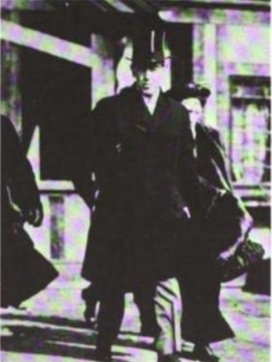
The following day, June 10, both Patton and Wilson spoke at the annual alumni luncheon. “I realize,” said Patton, “that this university stands face to face with new problems of development. In respect to the new administration, the policy which is to be inaugurated is a policy that ought to be inaugurated by him who has every reason to look forward to 20 or 25 years of administrative service.” Patton expressed his wish to return to teaching and declared, “With my whole heart and with every element of my being I am in sympathy with the action of the trustees, in which I had the honor to participate, which has placed Woodrow Wilson in the leadership of Princeton University.”
Wilson’s response was equally magnanimous. He asked his audience to “sympathize with me…in the feeling with which I realize that I am to be the successor of the brilliant man who has just addressed you…I can only speak for myself and my colleagues in the faculty when I say that I rejoice that he is not to leave Princeton. If he is not to be our leader, he is to continue to be our ornament, and therefore we shall not lose all of the brilliant service which he has rendered to this university during the 14 years of his administration.”
Wilson’s election was widely publicized and highly praised in the national press. The New York Sun, however, incited an uproar by printing, on June 10, an anonymous letter which asserted that Patton had been “‘forced’ out of the presidency as a bar to the progress of the university and as personally undesirable.” The Sun stirred further controversy by publishing, between Jun 12 and 14, several sensational, if erroneous, stories about the succession. Among other things, the paper alleged that van Dyke, West, and McPherson had each sought the presidency, that Patton had pushed for Wilson in order to foil their plans, and that Patton’s sudden resignation and Wilson’s prompt election had prevented an unseemly scramble for office among the three. The Sun’s allegations were criticized by the New York Evening Post of June 14, and rejected by the PAW of the same day.
For his acquiescence in the decisions Patton was well compensated. A fund was established in his name, to which the trustees contributed a total of $31,500 – the “severance pay” ultimately agreed to by him and the board. The $10,000 per year which he had earlier requested was apparently scaled down to $5,000 annually for six years, with $1,500 added as interest. Patton remained Stuart Professor of Ethics, at $4,000 per years for one semester’s teaching annually, until his retirement to Bermuda in 1913.
Finally, his son, George Stevenson Patton ’91, was simultaneously promoted from assistant professor of moral philosophy to full professor. Since the younger Patton had attained no graduate degree nor made any scholarly contributions, his sudden, not to say steep, promotion raised as many questions within the university community as did his father’s resignation on the outside. The younger Patton remained on the Princeton faculty until 1914, when he joined his father in Bermuda, accepting the position of director of education for the entire Crown Colony.
President Emeritus Patton did not enjoy the serenity of teaching and research for long. In the fall of 1902 he was appointed president of Princeton Theological Seminary, where he had taught in 1881-88. Under pressure from the Presbyterian Church to establish a more effective administration, the seminary – more precisely, its faculty – found in Patton the ideal combination of religious orthodoxy and administrative experience. Upon his retirement in 1913, Patton left with the seminary faculty’s respect and good will intact – the opposite of his university experience. Wilson’s forced resignation from Princeton’s presidency three years earlier, following a tumultuous and abbreviated tenure, provides a most ironic contrast.
Equally ironic was Patton’s receipt of an honorary degree from Princeton at its 1913 Commencement. The citation was written and read by, of all persons, Dean West. This tribute, which Patton later called one of the finest he, a polished orator, had ever heard, though hardly earned, included the following: “A searching critic of utilitarian, agnostic, and naturalistic thinking, interpreter of the primal convictions of the human mind as to its own nature, the theistic implications of the world and the ground of moral obligation; eloquently convincing, whether in studious mood or when flashing on the dark places of argument the sudden light of wit; an alchemist in rhetoric, transmuting the plain into brilliancy; a master-swordsman in dialectics; theologian in the school of Augustine; philosopher in the house of Anselm; vindicator of the historic Christian faith – his kinship, in all humility of soul, is with the communion of saints intellectual and spiritual.”
Patton remained in Bermuda for the rest of his life, dying there on November 25, 1932, at the age of 89. Fondly known as the “Grand Old Man of Bermuda,” he received numerous tributes from the local government and press on his birthdays and upon his death. Although he never returned to Princeton, he welcomed scores of visiting Princetonians, kept himself informed on university affairs, and contributed several articles and interviews to PAW.
Moreover, two of his former students, Alfred Dennis ’91 and M’Cready Sykes ’94, wrote retrospects on Patton’s administration for PAW in which they wondered aloud whether, n the long run, Patton’s brand of leadership had been as valuable as Wilson’s in transforming the college into a university, and whether, in Sykes’ words, “Dr. Patton could wisely have gone forward much faster than he did at that time.” To them the question was rhetorical, and no doubt to Patton’s critics it was as well.
This was originally published in the November 6, 1978 issue of PAW.


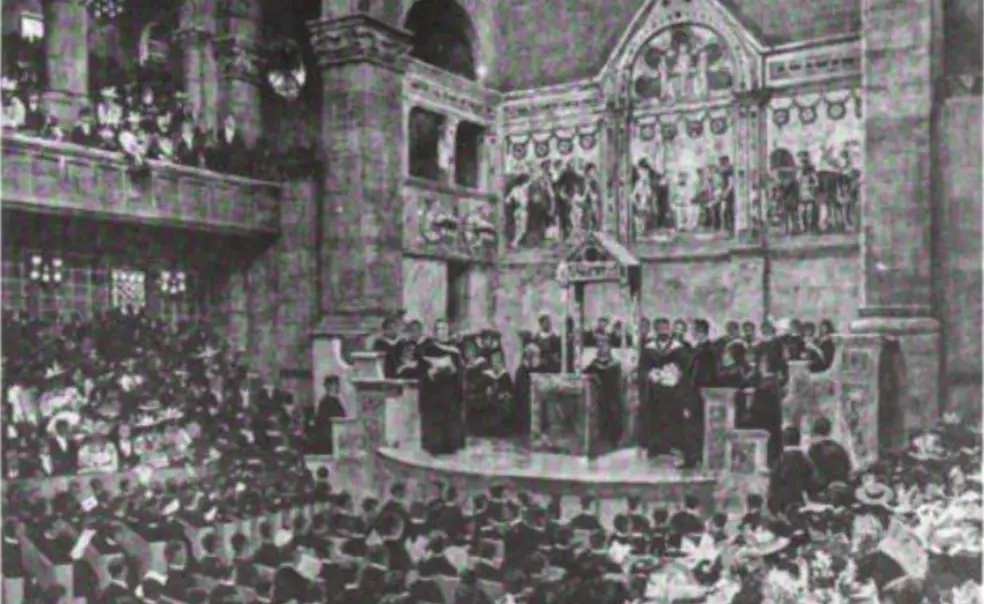
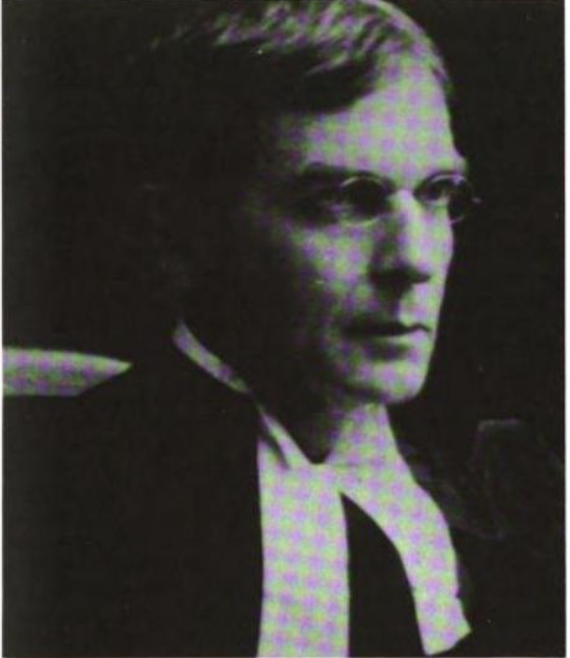
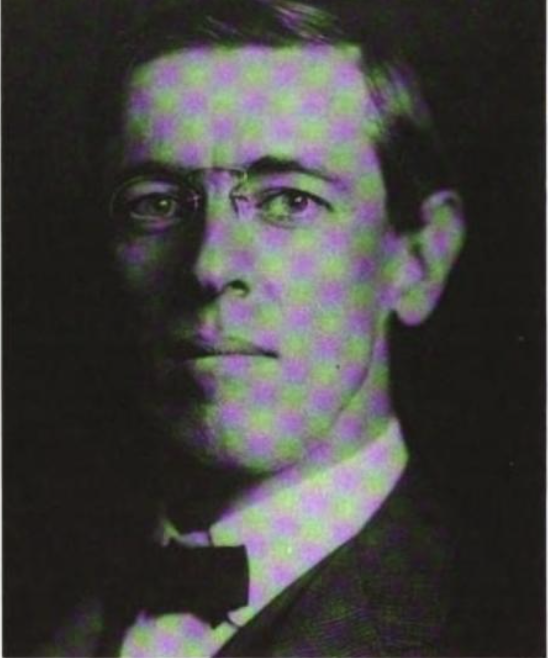
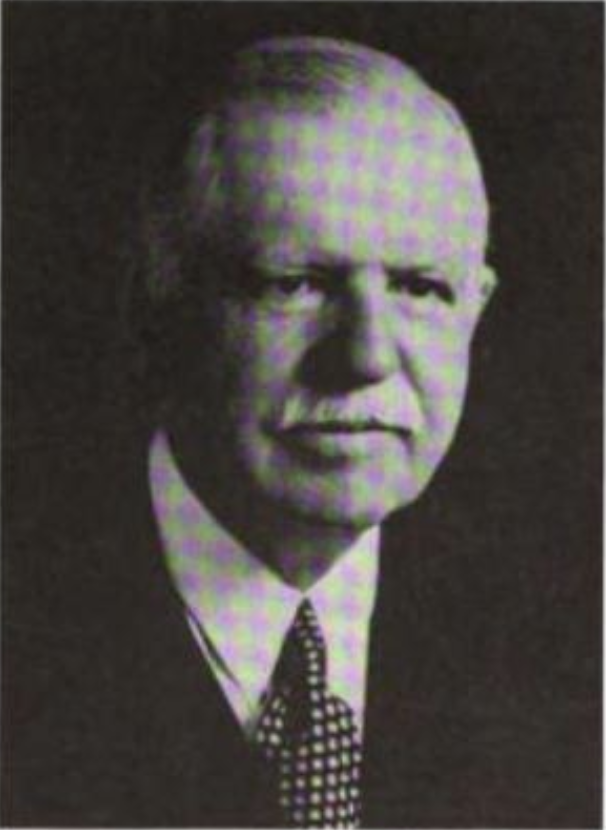
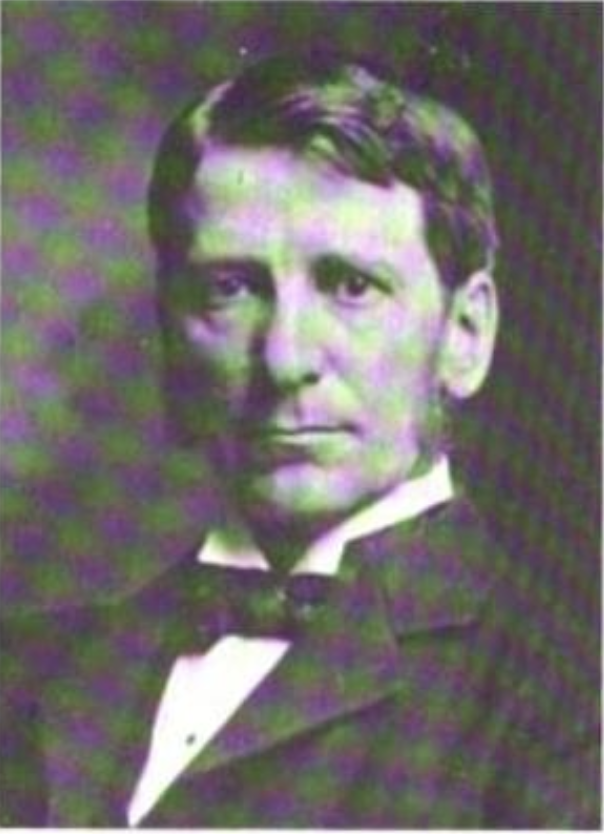
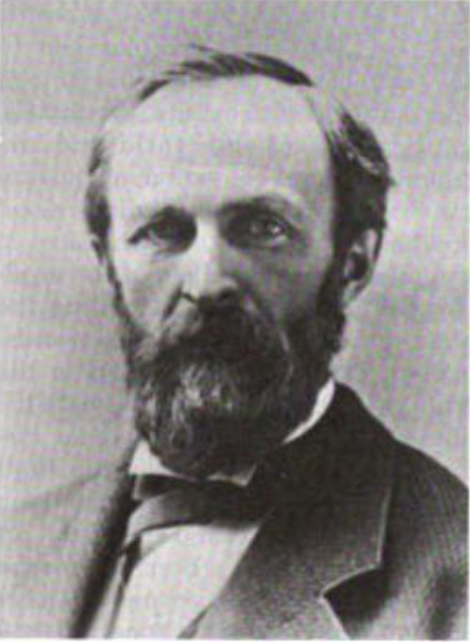
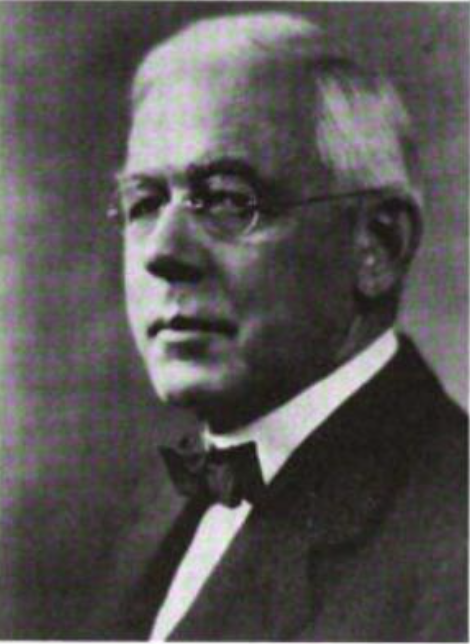









No responses yet